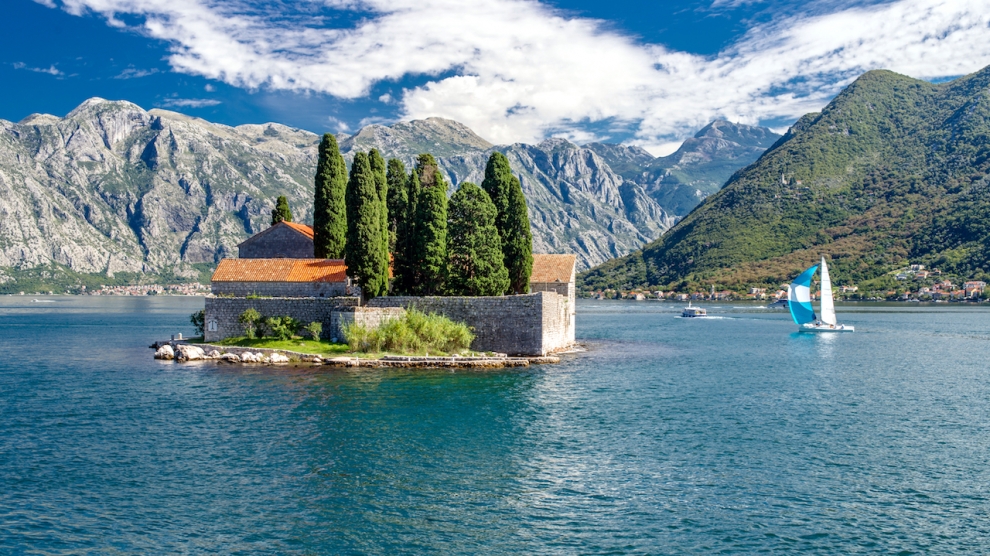Montenegro is a gorgeous country on the Adriatic coast and one of the most popular tourist hotspots in Europe. The country’s economy — from big hotels and restaurants to small authentic cafes — relies heavily on the flow of tourists.
However, what many tourists do not realise, despite perhaps seeing lush orchards and vegetable gardens on their way to the seaside, is that they are more than likely eating imported food. Montenegro currently imports far more fruit and vegetables from the European Union (EU), and from neighbouring countries such as Serbia, than it exports.
The problem is not a lack of land or hard-working farmers to grow fruit and vegetables. Montenegro is endowed with favourable natural conditions to grow quality produce, including a mild climate, uncontaminated land and plenty of water for irrigation. Vegetable growing is a traditional business in some regions, especially around the capital Podgorica.
But the sector is dominated by small farmers who use traditional methods of agriculture, which means low productivity. In a modern economy, food processors and retailers need reliable flows of quality products. Currently, local farmers cannot guarantee a sufficient and/or reliable supply of produce. They also have difficulty accessing finance to grow their businesses.
The EBRD believes there is great potential for Montenegro to substitute many of these imports with locally-grown quality produce, providing jobs for local farmers and reducing transportation and storage.
While there is significant export potential for Montenegro’s horticultural sector, its main opportunity is in the domestic market, given the country’s dynamic tourism sector. However, at present, growth in tourism tends to increase imports of fruit and vegetables rather than stimulate local agriculture.
The Montenegrin Ministry of Agriculture and Rural Development recognises the importance of developing the horticultural sector. It is already supporting producers’ organisations and providing funds for farmers and food processors to invest in more efficient machinery and production facilities. There is discussion about developing specific quality standards for these markets, including Montenegro’s own geographical indications, organic food certifications or GAP (Good Agricultural Practices) certification.
However, the EBRD believes that, in order to really unlock the sector’s potential, Montenegro needs to develop sustainable value chains. Together with the UN’s Food and Agriculture Organisation (FAO) we have already worked with meat producers and processors on upgrading the quality standards in Montenegro.
To build on this successful experience, the Montenegrin Ministry of Agriculture and Rural Development invited EBRD and the FAO to contribute to value chain integration for the fruit and vegetable sector. We are now working with retailers and wholesalers, in the country, on a technical cooperation programme to improve supply chain linkages, producer organisation and consolidation, as well as safety and quality standards.
One way of linking farmers and suppliers is the use of a national distribution centre.
The EBRD has provided equity financing to Voli, a leading supermarket chain, to build a new, state-of-the art distribution centre in Podgorica. Construction is already underway and the centre will open in June 2017. The centre will not only supply Voli’s own supermarkets but other retailers too. The 13,000 sq m distribution centre will also create links between local suppliers and wholesale and retail customers. Over time, Voli is planning to purchase more fruit, vegetables and dairy products from existing local suppliers and attract new ones.
By entering into a contract with such a distribution centre, a local farmer will have a more stable income, which in turn will allow them better access to finance, and provide a wholesale customer — such as a hotel — with a reliable supply of local produce.
If these links are built, the whole country, as well as tourists and foreign investors who are interested in Montenegro’s attractive tourism sector, will benefit from more local, fresh and delicious food.
This piece is part of the EBRD 2017 Annual Meeting and Business Forum special report, prepared together with the European Bank for Reconstruction and Development. To register for the event, click on the banner below.
_______________
The views expressed in this opinion editorial are the author’s own and do not necessarily reflect Emerging Europe’s editorial policy.



[…] Naslovna fotografija: Emerging Europe […]